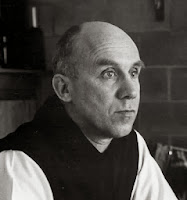It's been a while since I posted anything from Mr. Wendell Berry, who had his 79th birthday on Monday of this week. I just began reading
The Unsettling of America. This is the book that put Berry the essayist "on the map" so to speak, and it's a book that continues to have legs almost forty years after it was published.
In some ways this is the work of an angry young man (if you consider being in one's 40's young). There's a perceptibly sharper edge than what comes after. If I'd read
The Unsettling of America before some of Berry's later nonfiction I might not have liked him as much as I now do. For instance, a statement like the following might seem too strident and over the top, as Berry inveighs against an "era of absolute human sovereignty" and "absolute human presumption. . . the flag of Ferdinand and Isabella in the hand of Columbus on the shores of the Indies becomes Old Glory in the hand of Neil Armstrong on the moon. An infinitely greedy sovereign is afoot in the universe, staking his claims." (p. 55)
Really? Can't we find any redeeming quality, any nobility, in mankind's impulse to discover new frontiers which led Columbus to discover a New World, and inspired a nation to put a man on the moon?
No, you won't find nuance here, but you won't find it either in prophetic writings going back to the Hebrew prophets and psalmists of old.
The Unsettling of America isn't that kind of book.
The subtitle "Culture & Agriculture" points to this then unknown author's audacious aim, and he begins to bring the two together in Chapter 4: "The Agricultural Crisis as a Crisis of Culture." It begins as Berry recounts the history of his beloved Henry County, Kentucky -- a county that was in Berry's childhood a rural
farming community, but which was becoming in the 1970's merely rural. Once-cultivated land was succumbing to neglect, and farms that remained were increasingly owned by out-of-town operators who were able to adapt to the "get big or get out" imperative of government and agribusiness. (Here's a clue to what separates Berry's approach to the land from most "environmentalists" -- a term he dislikes. Rather than the environmentalist goal of
preservation, i.e. keeping the wilderness in a pristine state, Berry is an advocate of
wise use.) Berry's anger is incandescent as he describes the effects of the absolutizing values of efficiency and bigness on the farming economy of Henry Co.
And nowhere now is there a market for minor produce: a bucket of cream, a hen, a few dozen eggs. One cannot sell milk from a few cows anymore; the law-required equipment is too expensive. Those markets were done away with in the name of sanitation—but, of course, to the enrichment of the large producers. We have always had to have "a good reason" for doing away with small operators, and in modern times the good reason has often been sanitation, for which there is apparently no small or cheap technology. Future historians will no doubt remark upon the inevitable association, with us, between sanitation and filthy lucre. And it is one of the miracles of science and hygiene that the germs that used to be in our food have been replaced by poisons. (p. 41)
Along with "efficiency" and "bigness" Berry indicts the mania for specialization in agriculture and education. This results in government bureaucrats telling farmers to eschew diversity in what they grow, and universities becoming places where one goes to learn a "profession," what Berry calls "fragmented, one-eyed specialties." An absolute faith in technology, and oversimplification, has replaced a holistic complex approach to the problems of agriculture and culture. Berry eloquently argues that the same values which nourish a healthy farm culture also make for a healthy culture. And what is that healthy culture? In offering a tentative answer to that question Berry's parochial concern for his native Kentucky soil takes on wings and soars.
A culture is not a collection of relics or ornaments, but a practical necessity, and its corruption invokes a calamity. A healthy culture is a communal order of memory, insight, value, work, conviviality, reverence, aspiration. It reveals the human necessities and the human limits. It clarifies our inescapable bonds to the earth and to each other. It assures that the necessary restraints are observed, that the necessary work is done, and that it is done well. (p. 43)
Quotes from
The Unsettling of America: Culture & Agriculture (Sierra Club Books, 1977)












